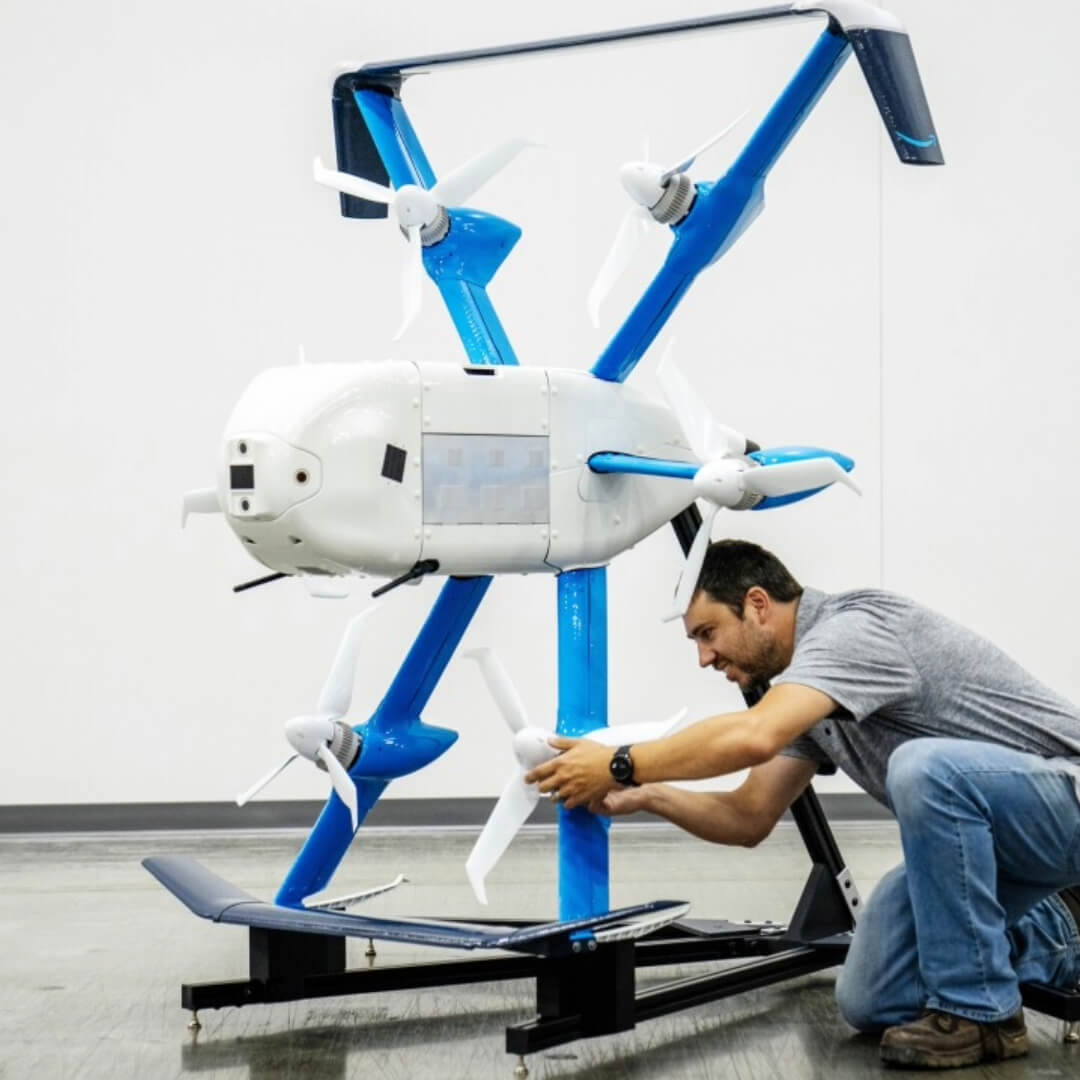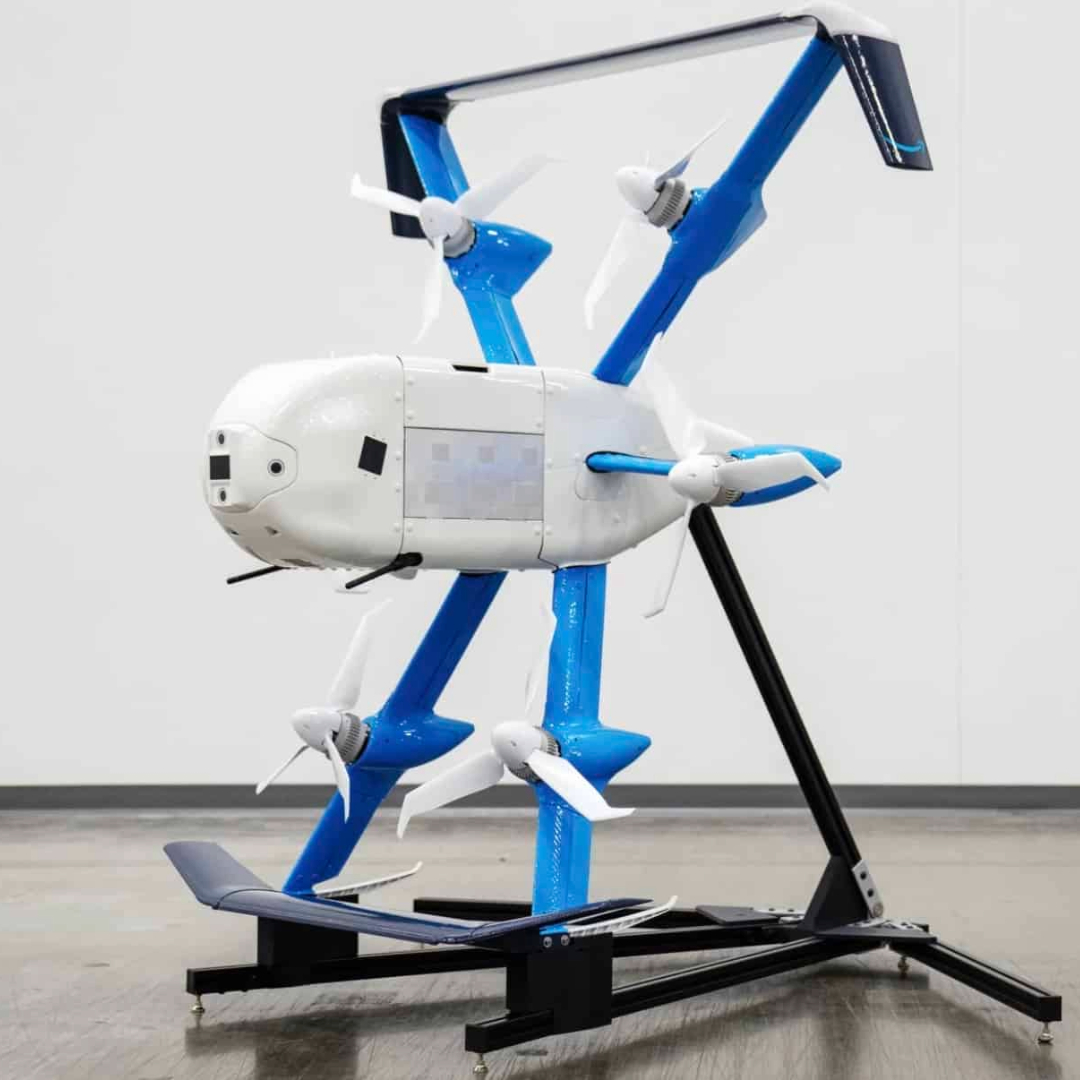Drone Delivery: Soraring Beyond Traditional Boundaries
In the fast-evolving world of parcel delivery, technological advancements are not just enhancing operational efficiencies but are also reshaping consumer expectations and industry standards. Drone technology, Artificial Intelligence (AI), and the Internet of Things (IoT) stand out as pivotal innovations driving this transformation.
Drone Delivery: Soraring Beyond Traditional Boundaries
Drones are revolutionizing the landscape of logistics, particularly in the last-mile delivery segment, by offering a faster, more cost-effective alternative to traditional methods. These unmanned aerial vehicles (UAVs) reduce the need for human intervention, cut down transportation costs, and minimize the environmental impact associated with conventional delivery vehicles. Notably, companies like Amazon are leading the charge, pushing the envelope with innovations such as the MK30 delivery drone.
The MK30 is Amazon's advanced delivery drone, designed to enhance and expand the capabilities of its aerial delivery services. This drone represents a significant step forward in Amazon's drone technology, following its predecessor, the MK27. Here's a deeper look into what the MK30 offers and how it advances drone delivery:
Features and Capabilities:
- Reduced Noise: The MK30 features custom-designed propellers that are intended to reduce the noise level by almost half compared to earlier models. This improvement is crucial for urban environments where noise pollution can be a significant concern.
- Enhanced Performance: It is lighter and smaller than previous models but comes with enhanced capabilities. These improvements make the drone more efficient and capable of operating in a broader range of weather conditions, including light rain.
- Increased Range: One of the standout features of the MK30 is its ability to fly twice as far as the earlier models. This extended range allows Amazon to serve more customers and cover a larger area from a single deployment point.
- Faster Delivery Times: With the ability to fly farther and in more varied weather conditions, the MK30 can deliver packages more quickly to a wider area, significantly cutting down on delivery times.
- Autonomous Flight Capabilities: The MK30, like its predecessors, is equipped with sophisticated sense-and-avoid technology. This system allows the drone to navigate around obstacles autonomously, ensuring safe delivery even in densely populated or complex environments.
The MK30 is going to revolutionize logistics and delivery services using drone technology.
AI in Logistics: Smarter, Faster, More Efficient
Artificial Intelligence is revolutionizing the logistics industry by optimizing operations and enhancing customer experiences. Here’s a more detailed breakdown of how AI is impacting logistics:
- Traffic and Conditions Analysis: AI algorithms can process real-time data on traffic, weather, and road conditions to optimize delivery routes, thereby reducing delivery times and saving fuel.
- Dynamic Routing: AI can reroute deliveries in real-time to avoid delays, ensuring faster and more reliable service.
- Demand Forecasting: AI uses historical sales data, seasonal trends, and external factors to predict future product demand, allowing companies to manage stock levels more efficiently.
- Automated Restocking: AI systems can automate ordering processes to ensure optimal stock levels, reducing the risk of overstocking or stockouts.
- Enhanced Resource Allocation: AI optimizes the use of resources, such as assigning the right number of trucks and staff based on real-time demand.
AI’s role in logistics is a game-changer, making operations more efficient, reducing costs, and improving service delivery, ultimately leading to a more robust and responsive supply chain.
IoT and Enhanced Parcel Tracking
The Internet of Things (IoT) is significantly transforming the logistics industry by enhancing connectivity and visibility across various processes. Here’s a deeper look at the multifaceted impact of IoT in logistics:
- Precise Location Monitoring: IoT devices employ GPS and additional technologies to provide exact, real-time tracking of vehicles and cargo, offering logistics operators continuous visibility over their assets.
- Streamlined Inventory Management: IoT facilitates automated inventory management by using sensors to track stock levels and usage patterns in real-time, ensuring efficient stock replenishment and reducing the risk of overstocking or stockouts.
- Security Enhancements: With sensors capable of detecting unauthorized access to shipments or facilities, IoT enhances security measures, mitigating risks associated with theft or tampering.
- Customer Behavior Insights: The data gathered through IoT can reveal insights into customer behaviors and preferences, allowing companies to tailor their logistics strategies to enhance customer satisfaction.
- Optimal Resource Utilization: IoT improves resource efficiency by enhancing asset tracking and inventory management, leading to reduced waste and better utilization of resources.
As IoT technologies evolve, they promise to further revolutionize logistics operations, making them more responsive and adaptable to changing market dynamics.
The integration of drone technology, AI, and IoT is setting new benchmarks in the logistics sector, transforming it into a more efficient, customer-centric, and sustainable part of the global economy. As these technologies continue to evolve, they promise even greater efficiencies and strategic advantages, making logistics operations more responsive and adaptable to future market dynamics and consumer demands. This technological evolution not only supports current logistical needs but also paves the way for future innovations that could further redefine the speed, accuracy, and reliability of global delivery services.




